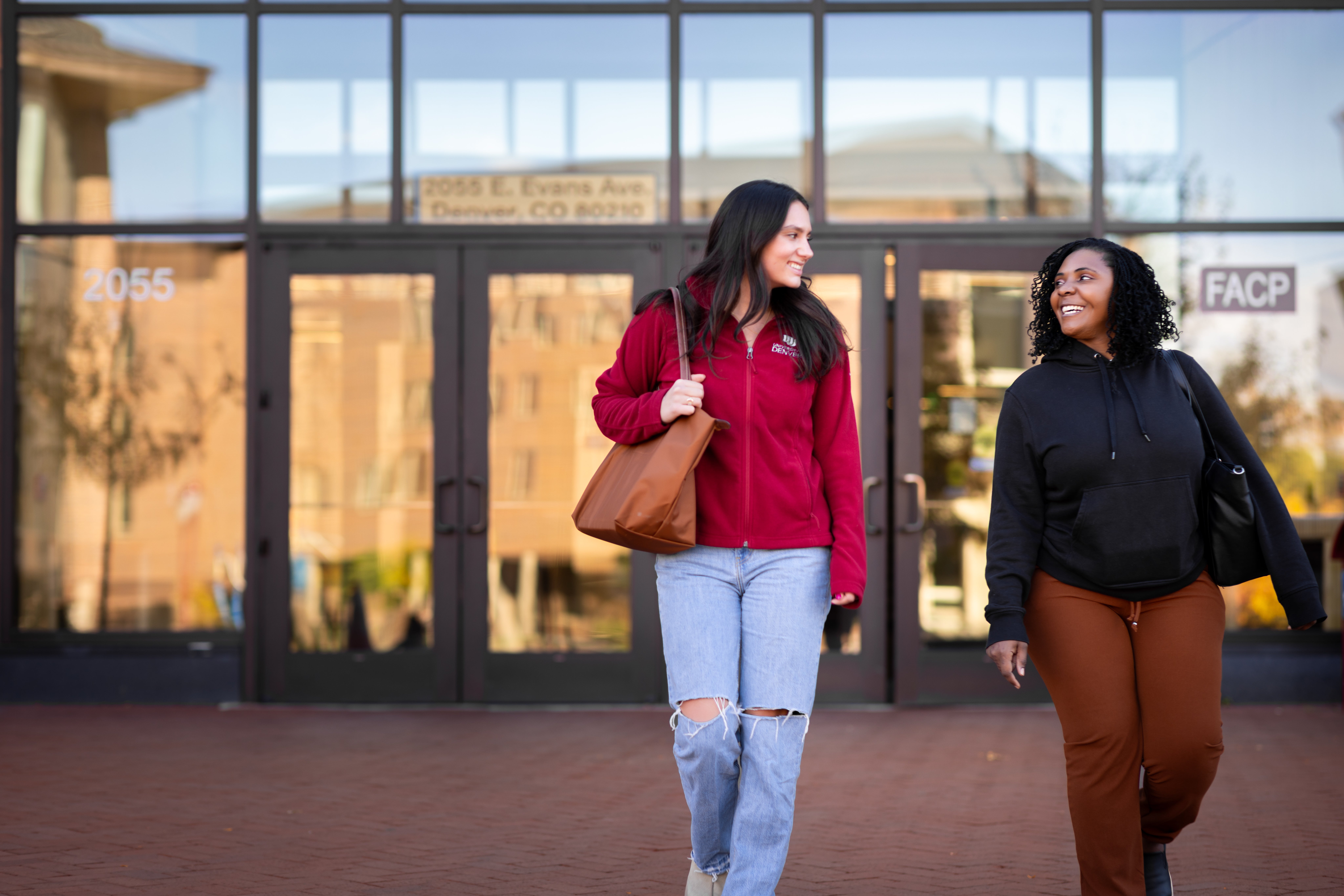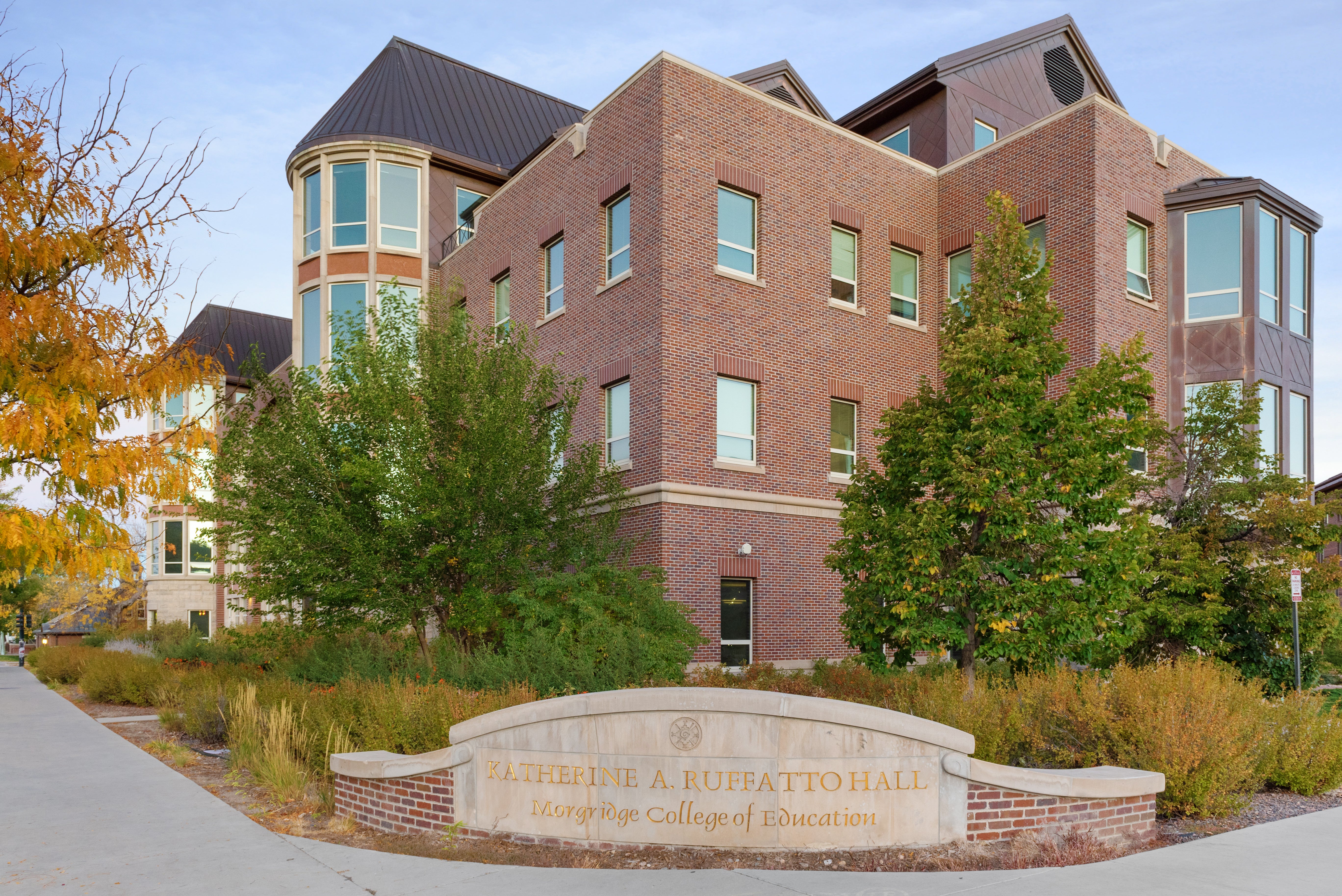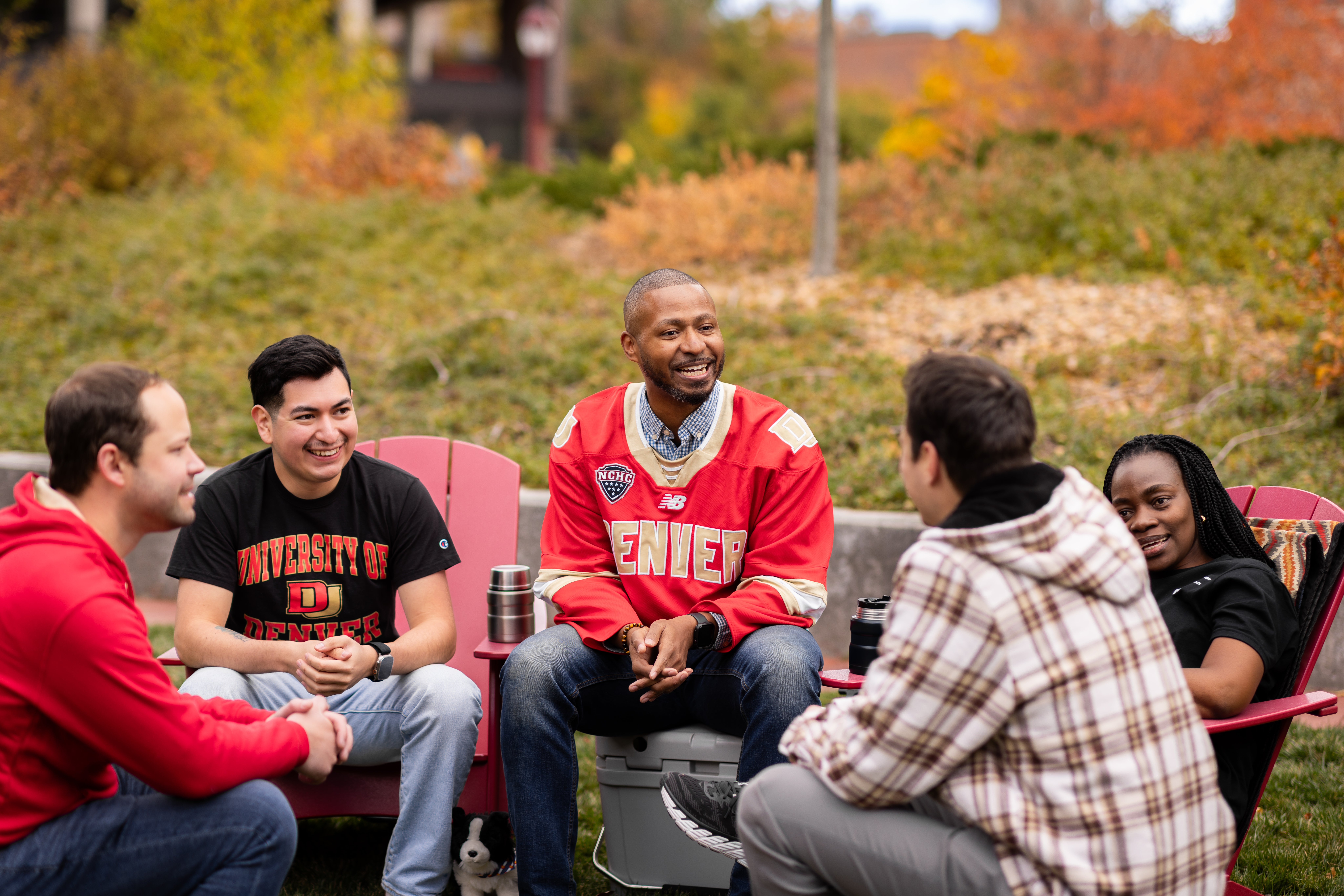Strategic Plan: Impact Morgridge
The goal of the Morgridge College of Education, simply put, is to improve the lives of others who have been, or continue to be, marginalized because of race, ethnicity, culture, economic position, geography and ability. Increasingly complex societal issues such as the mental health crisis, educational achievement gaps and intergenerational poverty cannot be addressed effectively from one angle; they call for new approaches to problem-solving. Developing and scaling effective solutions to these challenges requires breaking down organizational and information silos in disciplines and systems while actively partnering with the people most affected by problems.
The Morgridge College of Education’s experts across the spectrum of learning, wellness, data, information and human development are unified by a deep commitment to social change and community through engaged scholarship, research and action. Our assets position the College to develop interdisciplinary and systemic solutions to complex challenges, thus ensuring that those solutions reach marginalized populations.
DU IMPACT 2025 poses the question, “What is the shape of knowledge in the 21st century, and how will our scholarship, practices of teaching and learning, and our institutional structures support it?” Our response? Be an incubator of innovation demonstrating how a college can advance knowledge creation for the 21st century.
Our Long-Term Strategic Goals
-
Embrace an inclusive, college-wide Think & Action Collaborative approach to achieve maximum social benefit.
The Think & Action Collaborative has far-reaching benefits for faculty, staff, students, alumni and the broader community, in addition to powerful alignment with DU IMPACT 2025.
The Think & Action Collaborative functions as a network of “Think & Action teams” comprising faculty, community partners, students, staff and alumni. Teams align collective expertise, skills and interests to address specific community issues and create lasting positive change. Integral to our team approach are reciprocal relationships with community partners that facilitate learning from and with each other. We also envision faculty and staff drawing upon each other’s expertise in ways that are mutually supportive. Through this approach, students will be more prepared for increasingly collaborative careers, and alumni will have an opportunity to transform the communities they care about.
The Collaborative will include the following attributes:
A focus on equity. One of the main drivers of research and community-focused action across the College is equity. The Think & Action Collaborative will provide a means to powerfully unite our shared interest in equity. Bringing our different skill sets together will make it possible to disrupt systems of oppression and challenging problems within our community and society. Moreover, this structure will promote equity by employing transparency and including relevant stakeholders at the table.
A community partnership. The Collaborative will enable us to develop deeper relationships within our community. One of the goals of this structure is to produce tools, resources and findings that can have lasting benefits for the community. To ensure that what this structure produces is useful, community members will be key stakeholders that authentically help direct actions from the beginning. As many of our alumni go out and work in the community, they too will become critical stakeholders. We will focus on helping to create a better-informed public and providing lifelong learning and access to resources for our graduates.
A focus on thought and action that drives impact. Morgridge excels at creating nationally and internationally recognized theory, research and practice. The Collaborative will encourage the testing and application of this knowledge to create positive results in the broader community. We will focus on becoming a trusted knowledge leader in our community by translating and disseminating scholarship to increase community access and by being accountable to the community. Strong collaborations with translational partners, such as libraries and schools, will facilitate this work. This structure will help us create novel approaches to longstanding challenges; prototype holistic approaches to emerging issues; disseminate fact- and data-driven policy decisions to improve learning outcomes; develop research-based white papers to advance policies, guidelines, and plans; and build capacity, including creating a resource and research bank for the community.
Dynamic, flexible, responsive and innovative. In order to have a greater influence on the issues we study and to disseminate knowledge that is relevant to a dynamic world, Morgridge will be defined by agility, responsiveness and innovation. While some challenges are longstanding, there are also new challenges and new angles to old challenges that emerge periodically. Having a flexible, collaborative approach guided by relevant stakeholders will help us to easily identify key problems, bring together relevant experts (across Morgridge, DU and the community) and produce timely knowledge to address the issue.
A shared Morgridge identity. Morgridge has a strong mission that is shared by faculty, staff, students and alumni. However, most strongly identify with their program and not with the College broadly. The Collaborative will reinforce the similarities shared across programs and strengthen the sense of shared identity at Morgridge. Further, collaborating with experts across DU and in the community will further refine our identity in terms of Morgridge’s place at DU and relationship with the Denver community.
-
Prepare students for an increasingly intersecting professional world.
Grounded in an ethic of social justice and an imperative to enhance the public good, our graduates pursue careers that meaningfully impact the lives of individuals and create tangible benefits for society.
We will leverage our existing resources, values and expertise to focus on applied and translational research and learning that connects individual departments, disciplines and professions to seize upon the shifting demands for interprofessional skillsets for and from our graduates as well as a societal demand for nuanced approaches to addressing pervasive problems.
What is particularly striking about our academic programs is the college-spanning aptitude for preparing our students for in-demand professions that are grounded in unleashing the power of learning to be a force for positive change in the lives of individuals, organizations and communities. While many of our graduates go on to more traditional roles within this space (e.g., teachers, counselors, librarians), a significant number of our graduates also advance learning through roles that demonstrate their exceptional adaptiveness in the professional world and the broader relevance of the values and skillsets we engender in them (e.g., research analysts, diversity and inclusion consultants, creative directors, curriculum specialists).
As the problems affecting our communities become increasingly multifaceted, our approach to finding solutions and helping those in need must be comprehensive and nimble. To prepare our students for a professional world that requires multifaceted skills to respond to society’s complex issues, we can lead the way in higher education by deliberately working across specialty areas to address the pervasive problems of learning and wellness that cross disciplines, professions and departments. At its core, an interprofessional approach at Morgridge means “learning with others to solve a common goal.”
There are few, if any, other colleges (let alone colleges of education) that already possess the resources, knowledge and capacity required to link the professions advanced at Morgridge in a manner that rises to the occasion lying before the industry of higher education to expand its civic impact and to fulfill the career-related demands of today’s students. By uniting the exceptional spread of professions cultivated, encouraged and advanced through the learning and teaching already happening at Morgridge, there is enormous potential to greatly increase the societal influence of the College, both as a college community of faculty, staff and students and in terms of the impact made by our graduates after they leave.
Perhaps most importantly, as we embrace interprofessional education as part of Morgridge's core identity, we recognize that it is not limited to only one group of our constituents. An interprofessional approach to advancing learning and solving societal issues makes use of the expertise and skillsets of everyone connected to Morgridge, across faculty, staff, students, alumni and community partners.
Imagine a college-wide initiative to tackle rural access to education: a core Think & Action team—drawing on the research conducted by faculty and students to know which gaps to fill and which actions to prioritize—leads the charge to create meaningful, mutually beneficial partnerships with relevant community members. As we extend our reach on this issue, we utilize our alumni who are already working in the professions that can make critical changes a reality (like teachers, policy-makers, psychologists and researchers) in rural locations across the state of Colorado and beyond.
-
Advance breakthrough solutions to complex challenges using an intersystems approach.
As societal issues become increasingly complex and less solvable through one-size-fits-all solutions, we will utilize methods that link systems to pave the way for breakthroughs on longstanding, complicated and systemic problems
As societal issues become increasingly complex and less solvable through one-size-fits-all solutions, we will utilize methods that link systems to pave the way for breakthroughs on longstanding, complicated and systemic problems such as educational achievement gaps across minority and low-income populations. Embracing an intersystems approach, we will collaborate internally across multiple fields of expertise, serve as a convener within the community and conduct research on the best ways to connect systems for positive outcomes.
Interprofessional and intersystems approaches are not equivalent nor are they mutually exclusive. Interprofessional approaches involve distinct disciplines learning and working together within a single system. For example, school psychologists or school counselors working in schools alongside teachers to meet the needs of students. Intersystems methods involve the linking of at least two separate systems. Extending the example, an intersystems approach would involve a psychologist from a hospital working with school psychologists or school counselors to meet the needs of students within in the mental health and education systems. The mental health professionals are working together and bringing their disparate systems together. This example, however, could also include an interprofessional approach if a developmental pediatrician and a social worker from a hospital worked together with teachers and administrators in a high need school to improve learning for children who have experienced adverse childhood events. In this latter example, interprofessional approaches are utilized within each system, and the systems are working together to address the particular needs of students.
Involving the resources of disparate systems is the only way that we can effect the change necessary to address the complex issues facing our society today and in the future. In order to address an issue like adverse childhood experiences — which presents educators with significant challenges, particularly with regard to student disengagement and outcomes — it is necessary to involve the education, mental health and judicial systems, including key components such as teacher education, early childhood special education, educational leadership, school psychology and school counseling.
Education alone cannot fully address multifaceted issues like childhood trauma. By serving as a convener and leader in the cutting-edge space of uniting systems to tackle complex societal issues of human health and development, we greatly expand our ability to provide meaningful solutions for the communities we serve. Our exciting new work with Project ECHO is an example of the intersystems approach, highlighting the opportunity we have to serve as a leader in this space, as well as the role big data and technology can play in linking systems to serve our community.
By combining the passions, research interests and expertise of our faculty and staff with engaged students, seasoned Morgridge alumni and collaborators from organizations within various systems, we can implement the practices proven effective for tackling these big issues and exert the influence necessary to address their root causes through systemic and policy-driven change. The Think & Action Collaborative is essential to support this work. Not only does such an approach play a role in facilitating new partnerships and opportunities for collaboration across the MCE and broader DU communities, it also helps position Morgridge to partner with external industries, businesses, nonprofits, institutions of higher education and government agencies. The partnership with the National Mental Health Innovation Center (NMHIC) at the University of Colorado Anschutz Medical Campus is an example of the relationships we can foster through an intersystems approach to advancing learning and to addressing societal issues related to education.
-
Infuse the values of the College into our everyday actions and unify the College under a collective identity
Focusing on our intentional culture is important for Morgridge for a number of reasons. Chief among these reasons is that it demonstrates how much we value our faculty, staff, students and alumni.
This is important for retaining and attracting great people to Morgridge; it is also important that we model it for our students, who are future educators, psychologists, counselors, researchers, librarians and principals.
Fostering an inclusive culture at Morgridge aligns well with the focus of the Inclusive Excellence Committee at the College, especially their recent work on cultural and meeting norms. Additionally, as we begin two years of what could be a somewhat challenging construction project on the DU campus, it will be critical to cultivate a positive and supportive culture that can carry us through the construction process. Finally, this goal of fostering intentional culture aligns with DU IMPACT 2025’s Transformative Direction 4: One DU. This transformative direction includes actions such as strengthening a sense of identity; being an exemplary employer; focusing on diversity, equity, and inclusive excellence; and engaging with alumni.
When defining intentional culture for Morgridge, faculty and staff laid out a number of key attributes. First, an intentional culture should be reflected in congruence between the values and beliefs of the College and the actions of the College. Intentional culture should focus on relationships between people, as the dynamics between people really produce the culture. Intentional culture is supported in two ways: top-down from the institution and bottom-up for those in the College. There is also a desire for clear expectations that reward innovation and reflect appreciation while they address fear and minimize hierarchies. Moreover, it is necessary for us to think critically about what we are rewarding and encouraging. As one staff member explained, “we are what we give oxygen to.”
Each of the elements of intentional culture described below are vital to attract, inspire and retain the high-performing faculty, staff and students who are central to the College.
Leadership. We will emphasize transformative leadership approaches that prioritize impact and our collective values. Transformative leadership is a critical component of shaping the intentional culture we desire, and for attracting and retaining talent across Morgridge.
Trust. A positive, supporting and inclusive culture is based in trust. Trust can be further embodied through our policies, practices and processes. Trust is also manifested through transparency. We want to ensure that everyone in the College feels connected not only to their departments or programs, but to their colleagues across the College and with alumni.
Communication. An intentional culture reflecting a fundamental sense of inclusivity, trust and collaboration is not possible without consistent and effective communication. We will focus on the ways in which we can improve our communication throughout Morgridge.
Mentorship. Mentorship not only helps set clear expectations for newer colleagues, it also creates relationships that could cross-cut programs. Further, mentorship can reinforce our shared identity at Morgridge while also providing an opportunity to revitalize our intentional culture.
Onboarding and training. Starting a new job can be stressful for a number of reasons. Providing strong onboarding and training, especially in the beginning, gives new colleagues strong preparation and aligns knowledge with expectations.
Inclusivity. Consistently reinforcing inclusive excellence across words and actions, and addressing disrespectful behavior in a meaningful and positive way, will strengthen our intentional culture. With the help of the Inclusive Excellence Committee, we will consider whether all actions by the College — even small ones — are reinforcing inclusive excellence. Many of the other components of this plan require innovation and calculated risk-taking. To encourage this, we will make sure that innovating and risk-taking is safe for everyone. Our intentional culture should value, respect and support individuals in all roles.
Collaboration. Traditional systems in the University and in academia do not necessarily promote collaboration. While advocating for changes in these systems, we can push back against the academy’s focus on individual successes and reward collaborative efforts and successes. It is important to encourage relationships among faculty, staff, students and alumni through activities like shared projects, collaborative teaching, professional mixers, faculty presentations at staff meetings and cross-program clubs (e.g., intramural sports). We will help faculty, staff, students, alumni and other partners see the connections that exist under the umbrella of education.
Joy and relationships. Finally, we will create a culture that celebrates relationships. This might include providing spaces (including virtual ones) and events that encourage both formal and informal gatherings within the College. It could also include acknowledging and celebrating the support systems of faculty, staff, students and alumni, which include their families.
Our ultimate goal is to serve our students. We accomplish this by integrating our values of praxis, equity and diversity, academic and scholarly excellence, collegiality, collaboration, and innovation into our everyday actions at the College and by prioritizing the services we provide to our students and the culture we build across the Morgridge community. An intentional culture that reflects our values and enhances our ability to collaborate in our work will deepen our impact as a college focused on being a force for positive change in the lives of individuals, organizations and communities through unleashing the power of learning.




